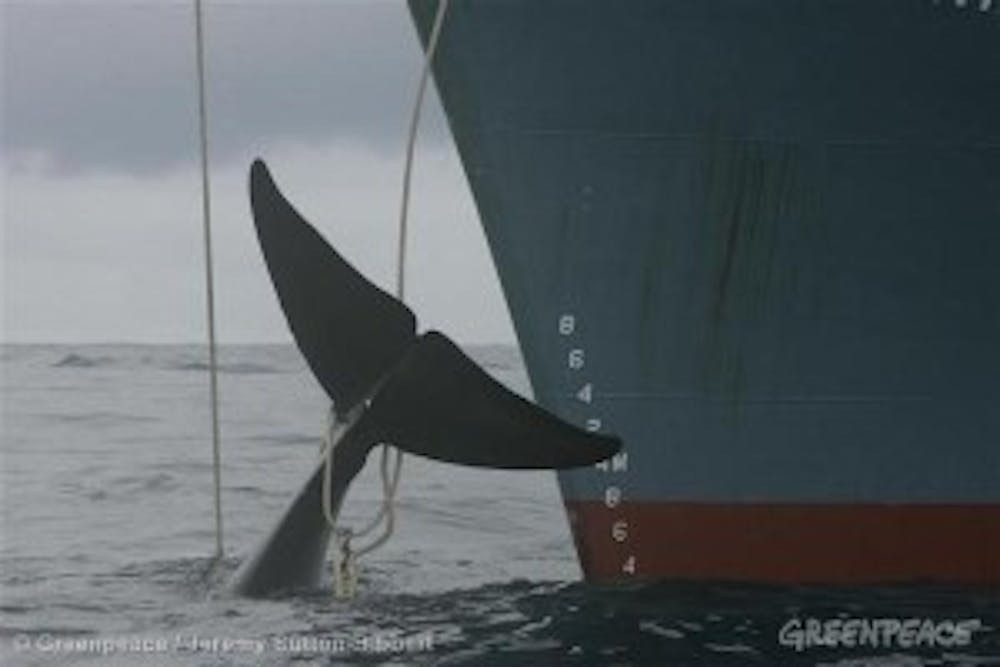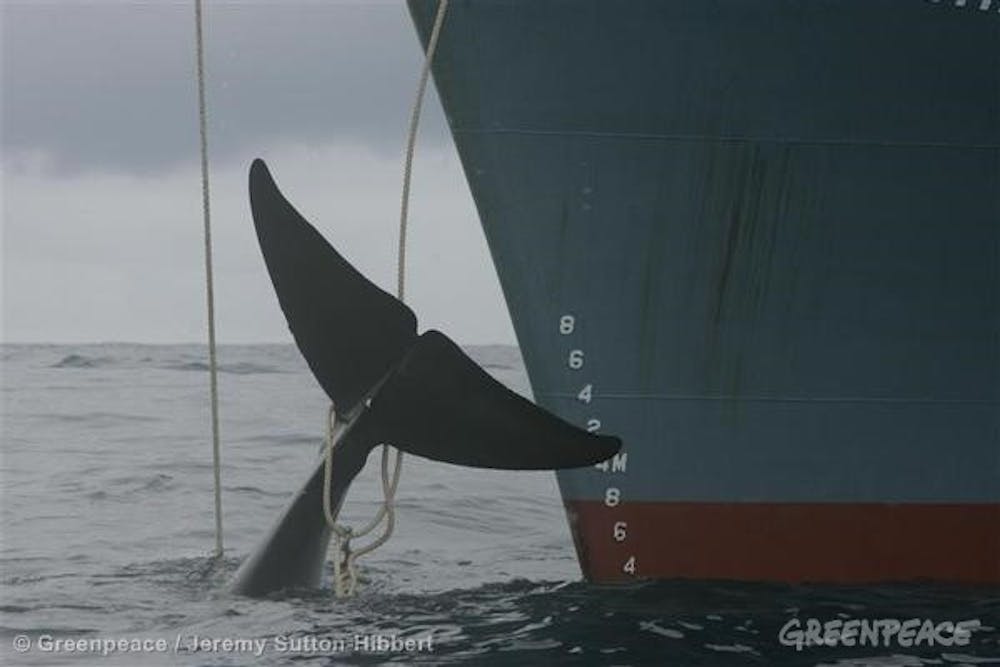Environmental science spans a vast range of topics. With critical issues such as climate change, overpopulation, and water scarcity it can be easy to overlook some of the smaller scale environmental concerns that do not seem to directly impact us.
Whaling is one such topic that fails to receive as much public recognition as it deserves given the uncertainty of what the future holds for whale populations and the crucial role they play in marine ecosystems and the environment.
Despite a complete ban on whaling by the International Whaling Commission (IWC) in 1986, over 1,000 whales are still being killed annually. This includes threatened and endangered species. While some countries, like Australia and New Zealand, are working with the IWC to develop conservation management strategies and encourage other nations to do the same, in Iceland, Norway, and Japan the ban on whaling is all but ignored. This is often due to a loophole in the ban, which states that whales may be caught and killed for research. Japan is widely known for using its scientific whaling program to mask its commercial whaling operations.
So why do people continue to hunt whales? Whales are primarily hunted for their meat and oil. In Japan, meat from whales is either sold in markets or given away to schools and hospitals. Recent evidence, however, indicates that interest in consuming meat from whales is dwindling. Even so, whale hunting is an important part of Japanese culture and opposition to whaling can be viewed as a threat.
Whether hunted for meat or cultural tradition, the environmental impacts of whaling are ones we may not be able to afford.
Whales are key species within an ecosystem. Scientists often view them as an indicator of ecosystem health and they play a vital role in marine nutrient cycling. Recently, reports have shown that whales may serve as a form of carbon storage in oceans indicating that hunting whales could have a negative effect on climate change.
In addition to playing an important role in environmental health, whales also provide economic benefits. Whale watching is a booming trend worldwide and is estimated to have generated almost three billion dollars in 2008. That means earnings from non-invasive activities, such as whale watching, far exceed those of whale hunting - something countries who choose to ignore the IWC’s ban might want to keep in mind.
Resources:
"End Commercial Whaling." NRDC: Natural Resources Defense Council. N.p., n.d. Web. 30 Sept. 2014. <http://www.nrdc.org/wildlife/whaling.asp>.
"The International Whaling Commission." IWC. N.p., n.d. Web. 1 Oct. 2014. <http://iwc.int/home>.
"Whale protection." Australian Government: Department of the Environment. N.p., n.d. Web. 1 Oct. 2014. <http://www.environment.gov.au/marine/publications/factsheet-whale-protection>.
"Which countries are still whaling?." International Fund for Animal Welfare. N.p., n.d. Web. 30 Sept. 2014. <http://www.ifaw.org/united-states/our-work/whales/which-countries-are-still-whaling>.
"Why Do the Japanese Hunt Whales? : Whale Wars: Animal Planet." Animal
Planet. N.p., n.d. Web. 1 Oct. 2014. <http://www.animalplanet.com/tv-shows/whale-wars/about-whaling/why-japanese-hunt-whales.htm>.
Whaling: The Unspoken Challenges

